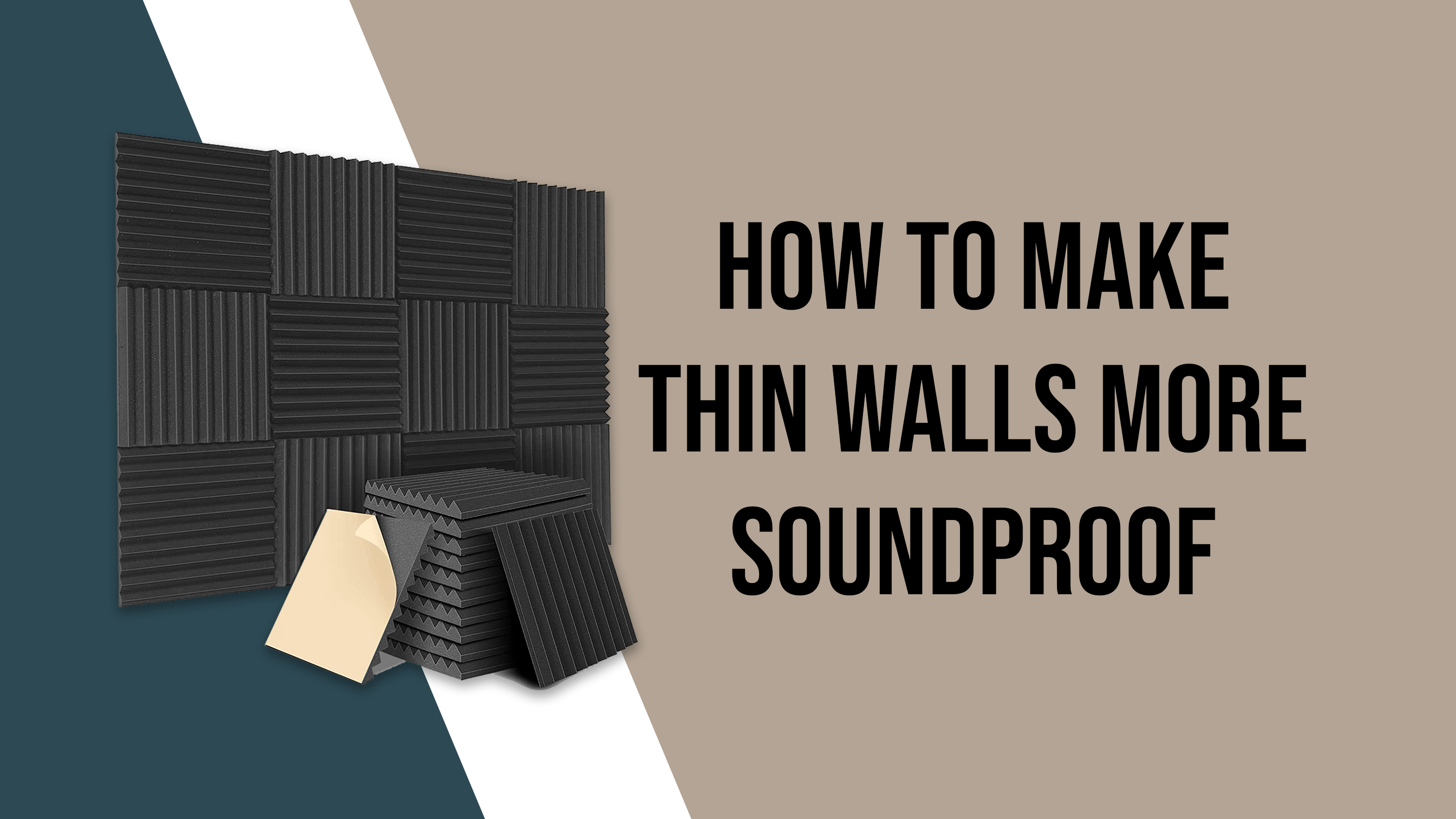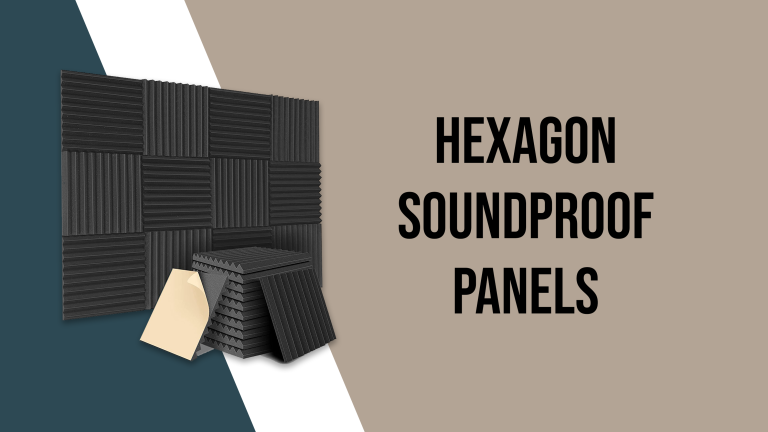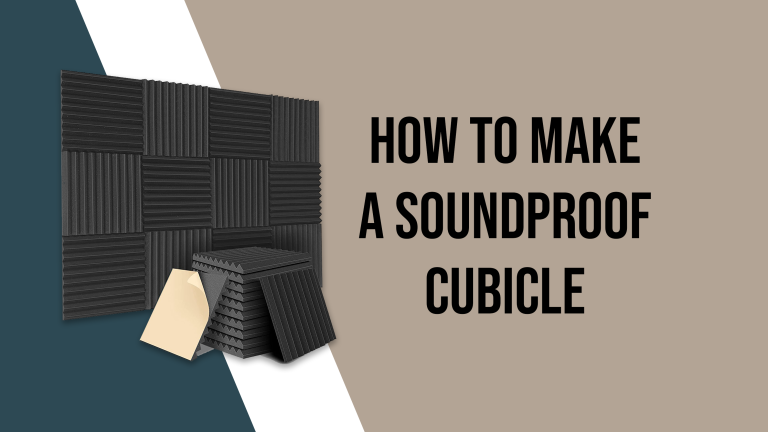How To Make Thin Walls More Soundproof
Soundproofing thin walls is a common problem for many homeowners and renters. Thin walls can allow for a lot of noise to filter through, making it difficult to enjoy a peaceful home environment.
However, there are a few steps you can take to make your thin walls more soundproof and reduce the amount of noise that enters your home.
How To Make Thin Walls More Soundproof?
Combining multiple methods can provide the best results.
You often soundproof:
- Barn Door
- Hollow Door
- Closet
- Drop Ceiling
- Hotel Rooms
- Hurricane Windows
- Baby Room
- Basement
- Mobile Home
- Apartment
Methods to Make Thin Wall More Soundproof
Use Acoustic Panels
One of the most effective ways to soundproof thin walls is to use acoustic panels. These panels are designed to absorb sound, reducing the amount of noise that enters your home. They can be mounted on the walls or ceilings and come in a variety of sizes and designs. Acoustic panels are particularly effective at reducing echo and reverberation, making your home more comfortable to be in.
Add Weather stripping
Another effective way to soundproof thin walls is to add weather stripping around your doors and windows. Weather stripping is a sealant that fills the gaps around doors and windows, preventing sound from entering your home. It is easy to install and can be purchased at most hardware stores.
Install Mass Loaded Vinyl
Mass Loaded Vinyl (MLV) is a dense, heavy material that is designed to block sound. It can be installed on walls or ceilings and is particularly effective at reducing noise from neighbors or traffic. MLV is also relatively easy to install, making it a popular choice for homeowners.
Use Soundproofing Paint
Soundproofing paint is a specialized paint that is designed to block sound. It is typically thicker than regular paint and can be applied to walls and ceilings. While it may not be as effective as other methods, it can help to reduce the amount of noise that enters your home.
Install a Door Sweep
A door sweep is a simple and cost-effective way to soundproof thin walls. It is a strip of material that is installed along the bottom of a door, sealing the gap between the door and the floor. This helps to prevent sound from entering your home, particularly noise from footsteps.
Use Soundproof Curtains
Soundproof curtains are a popular choice for soundproofing thin walls. They are designed to block out noise and can be hung on any wall. They are particularly effective at reducing noise from outside, such as traffic or neighbors.
Install a Soundproofing Floor Underlayment
If you’re looking to soundproof thin walls from below, installing a soundproofing floor underlayment is a good option. This type of underlayment is designed to reduce the amount of noise that is transmitted through your floor, helping to keep your home more quiet.
By using these methods, you can make your thin walls more soundproof and enjoy a more peaceful home environment. While some methods may be more effective than others, using a combination of these techniques can help to provide the best results.
Benefits of Soundproofing Thin Walls in Your Apartment
Soundproofing thin walls in your apartment can have several benefits, including:
Improved sleep:
Thin walls can make it difficult to sleep, especially if you live in a busy area or your neighbors are loud. Soundproofing your walls can help block out unwanted noise, allowing you to get a better night’s sleep.
Increased privacy:
Soundproofing your walls can also increase your privacy by blocking out noise from your neighbors and reducing the amount of sound that travels through your walls.
Reduced stress:
Constant noise can be stressful and can negatively impact your mental health. By soundproofing your walls, you can reduce the amount of noise you hear, which can lead to lower stress levels.
Increased property value:
If you plan to sell or rent your apartment in the future, soundproofing your walls can increase the value of your property. Potential buyers and renters will appreciate the added sound insulation, which can make your apartment more attractive to them.
Increased comfort:
Soundproofing your walls can make your apartment more comfortable by reducing the amount of noise you hear. This can create a more peaceful and relaxing living environment.
Better work-life balance:
If you work from home or use your apartment as a home office, soundproofing your walls can help create a more professional and focused work environment.
Why Apartment Walls Are Often Paper-thin
Apartment walls are often paper-thin for several reasons, including:
Cost-effectiveness:
Building apartments with thin walls is often more cost-effective for developers and builders. Thicker walls require more materials and labor, which can increase construction costs.
Building codes:
Building codes in some areas may not require a certain level of sound insulation for apartment walls. This means that developers and builders may not have to construct walls to a certain thickness in order to meet code requirements.
Building design:
Some apartment buildings are designed with open floor plans, which can make it difficult to construct thick walls. This can be the case for example in high-rise buildings where the space is limited and the walls have to be thin.
Building materials:
The materials used to construct apartment walls may not be as soundproof as other materials. Drywall, for example, is a relatively inexpensive and common building material, but it does not provide a high level of sound insulation.
Building age:
Older apartment buildings may not have been constructed with sound insulation in mind, which can result in thin walls that do not provide much soundproofing.
How can you soundproof walls of thin walls without people noticing?
There are several ways to soundproof walls of thin walls without people noticing, including:
Adding insulation:
Insulation can be added to walls to help soundproof them. This can be done by blowing in cellulose insulation or installing fiberglass batts. This method is effective, but it can be noticeable if the walls have to be opened.
Adding mass:
Adding mass to walls can help soundproof them. This can be done by adding a layer of drywall or paneling over the existing walls. This method is effective, but it can be noticeable if the walls have to be opened.
Adding a barrier:
A barrier can be added to walls to help soundproof them. This can be done by installing a soundproofing membrane or a soundproofing mat. This method is effective, but it can be noticeable if the walls have to be opened.
Using Acoustic Panels:
Installing acoustic panels on the wall can be a great way to soundproof thin walls. The panels come in various sizes and designs and can be easily mounted on the wall. They can be painted to match the wall color and can be removed easily.
Using Soundproof Curtains:
Installing soundproof curtains on the wall can be an easy and inexpensive way to reduce the noise coming through thin walls. These curtains are thick and lined with a sound-absorbing material. They can also be used for decorating the room as well.
Soundproofing paint:
There are special paints available in the market that are designed to reduce noise transmission. These paints can be applied on the walls like regular paint, but they contain sound-absorbing particles that can help block noise from passing through the walls.
FAQ’s
What to do when walls are too thin?
To improve soundproofing in thin walls, you can use methods such as installing acoustic panels, adding weather stripping around doors and windows, installing mass loaded vinyl, using soundproofing paint, installing a door sweep, using soundproof curtains, and installing a soundproofing floor underlayment.
How can I stop hearing my neighbors through walls?
To reduce noise from your neighbors, you can use soundproofing methods such as installing acoustic panels, adding weather stripping around doors and windows, installing mass loaded vinyl, using soundproofing paint, installing a door sweep, using soundproof curtains, and installing a soundproofing floor underlayment. Additionally, you can talk to your neighbors about noise levels and ask them to keep noise to a minimum during certain hours.
Can you make walls more soundproof?
Yes, it is possible to make walls more soundproof by using methods such as installing acoustic panels, adding weather stripping around doors and windows, installing mass loaded vinyl, using soundproofing paint, installing a door sweep, using soundproof curtains, and installing a soundproofing floor underlayment.
What is the thinnest soundproofing?
Acoustic panels are considered one of the thinnest soundproofing options as they can be mounted on walls or ceilings and come in a variety of sizes and designs.
How do you increase wall thickness?
One way to increase wall thickness is by adding another layer of drywall or a soundproofing material to the existing wall. Another option is to build a new wall in front of the existing one.
How can I thicken my walls?
You can thicken your walls by adding another layer of drywall or a soundproofing material to the existing wall, or by building a new wall in front of the existing one.
Can you soundproof a room without damaging walls?
Yes, it is possible to soundproof a room without damaging walls by using methods such as installing acoustic panels, adding weather stripping around doors and windows, installing mass loaded vinyl, using soundproofing paint, installing a door sweep, using soundproof curtains, and installing a soundproofing floor underlayment.
How do you soundproof a shared wall?
To soundproof a shared wall, you can use methods such as installing acoustic panels, adding weather stripping around doors and windows, installing mass loaded vinyl, using soundproofing paint, installing a door sweep, using soundproof curtains, and installing a soundproofing floor underlayment. Additionally, you can talk to your neighbors about noise levels and ask them to keep noise to a minimum during certain hours.
Is it normal to hear neighbours through wall?
It is not uncommon to hear noise from neighbors through walls, especially if the walls are thin or poorly insulated.
Is it normal to hear your neighbors talking?
It depends on the construction of your building and the level of noise insulation. In some cases, it may be normal to hear your neighbors talking, while in other cases, it may indicate a lack of soundproofing.
Conclusion
Soundproofing thin walls is a common problem that many homeowners and renters face. However, by using methods such as acoustic panels, weather stripping, mass loaded vinyl, soundproofing paint, door sweeps, soundproof curtains and soundproofing floor underlayment, you can reduce the amount of noise that enters your home and enjoy a more peaceful living space.







